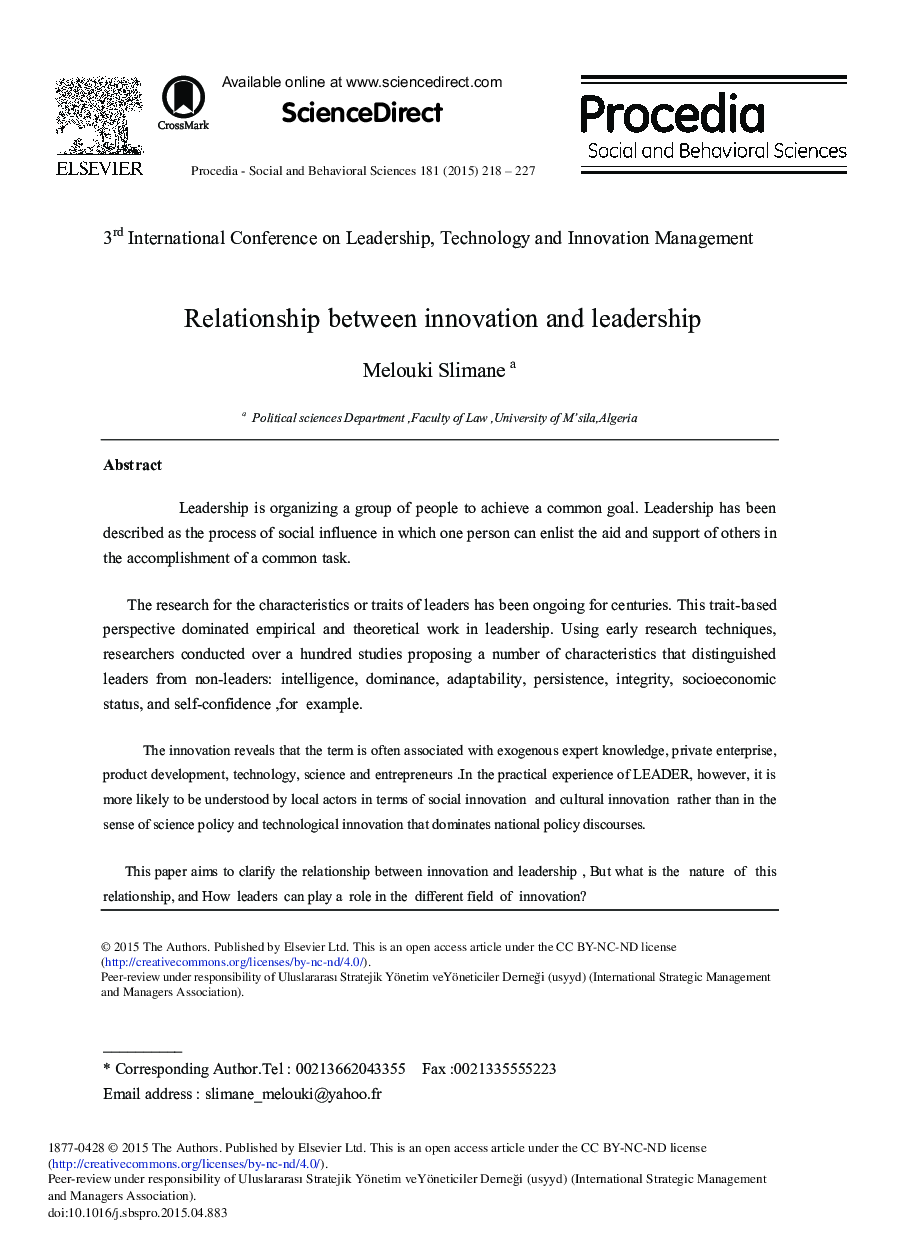| Article ID | Journal | Published Year | Pages | File Type |
|---|---|---|---|---|
| 1111320 | Procedia - Social and Behavioral Sciences | 2015 | 10 Pages |
Leadership is organizing a group of people to achieve a common goal. Leadership has been described as the process of social influence in which one person can enlist the aid and support of others in the accomplishment of a common task.The research for the characteristics or traits of leaders has been ongoing for centuries. This trait-based perspective dominated empirical and theoretical work in leadership. Using early research techniques, researchers conducted over a hundred studies proposing a number of characteristics that distinguished leaders from non-leaders: intelligence, dominance, adaptability, persistence, integrity, socioeconomic status, and self-confidence,for example.The innovation reveals that the term is often associated with exogenous expert knowledge, private enterprise, product development, technology, science and entrepreneurs .In the practical experience of LEADER, however, it is more likely to be understood by local actors in terms of social innovation and cultural innovation rather than in the sense of science policy and technological innovation that dominates national policy discourses.This paper aims to clarify the relationship between innovation and leadership, But what is the nature of this relationship, and How leaders can play a role in the different field of innovation?
